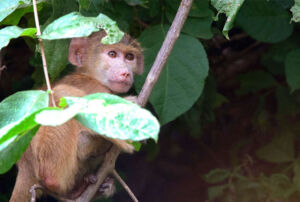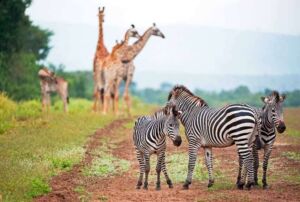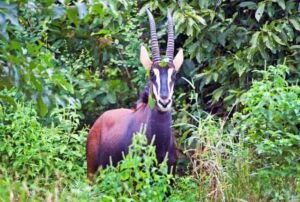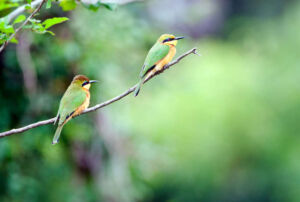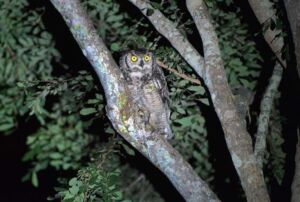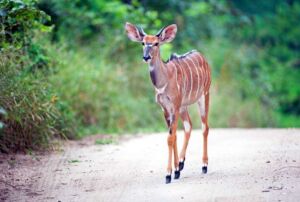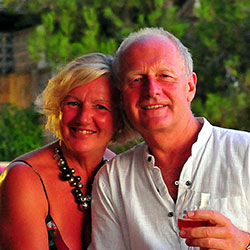This self-proclaimed ‘warm heart of Africa’ is a gentle introduction to Africa and safari with plenty of opportunities for understated luxury relaxation in beautiful locations
As our modern jetliner touches down in Blantyre, the second city of Malawi and taxis to the small terminal buildings with neatly tended garden in front, it’s easy to believe that you’re back in colonial Nyasaland, as Malawi was once called. The smiles and banter from Border Control officers wrong-foots us for a moment and their freely given assistance with completing our ‘on-arrival’ visa applications is a revelation.

Leaving the terminal it’s only a few minutes before we’re immersed in a sprawling and sometimes ramshackle city that shows little individual character when compared with any other African connurbation.
Leaving this behind and travelling west into the rural areas and we start to develop an appreciation of what makes this country so welcoming. Everywhere we stop for refreshment, to visit a local market or to change money, the local population is openly friendly and engaging.
That said, be aware that taking photos of people is not always welcome, as tourists are a relatively new occurrence here and suspicion falls upon those with flashy cameras as being journalists ready to make money out of their willing compliance – so just ask and respect a refusal, if it happens, to ensure you get on well with the locals.
Our first major stopover is in particular Majete Wildlife Reserve, only an hour’s drive from Blantyre. The Reserve is now fully fenced and protected; the result of massive efforts on the part of African Parks to rejuvenate this and many other wildlife areas. Once completely poached out and degraded by the 1970’s, it now boasts a repopulated representation of the Big Five that flourish in its rolling hills, grassland and forest.

There are a few lodges in and around Majete but the most impressive in our opinion is Mkulumadzi by Robin Pope Safaris, beside the confluence of the Shire and Mkulumazi rivers. Beautifully comfortable individual lodges guarantee a relaxing and luxurious stay and after a wonderful meal you can bathe in the pool whilst playing Rock-or-Croc in the river below.



Safari here, as with many places, depends for its success on time of year (how dense is the undergrowth) and the proficiency of your guide but you’re sure to, as we did, stumble across lion, elephant, giraffe, sable, nyala, waterbuck, crocodile, hippo, impala and zebra, as well as a chance of seeing cheetah, black rhino and buffalo. Majete is now a shining example of what can be achieved with initiative, determination and engagement with local people who are encouraged to see the benefit in conservation rather than cooking.
Majete and Liwonde are the principal wildlife reserves in Malawi but you’ll be spoilt for choice between the ten National Parks and Wildlife Parks – your selection very much dependent upon what sort of holiday you’ve planned.

In our opinion you would travel to Malawi, not primarily as a safari destination but as a combination holiday of wildlife together with rest and relaxation, in some of the lovely lodges situated around the shores of Lake Malawi or on one of its many islands.
It’s for this reason we refer to Malawi as a ‘gentle’ alternative to normal African destinations that can be full on safari with little alternative distraction from the sometimes frenetic pursuit of wild animal sightings amidst crowded environments.

Unfortunately our stay in Malawi doesn’t afford us the time to visit the tea estates or the hiking trails of Mount Mulanje, which we’re assured are superb and we move on towards Lake Malawi.
Part of the Great African Rift Valley, the lake is simply enormous and we hear tales of a couple being lost on a boat for two weeks before being discovered by aerial search.

Panoramic views from Pumulani
We’re lucky enough to stopover at Pumulani, another Robin Pope Safaris lodge, which is a beach resort with spacious, well equipped ‘apartments’ on the hillside overlooking the lake.
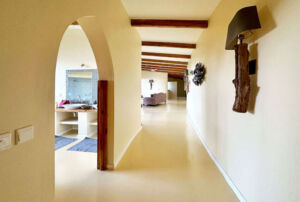

Although the walks can be steep on wooden stairways, there are rooms on a more level walk from the dining/reception area and a tuk-tuk will take you down to the beach and lakeside pool area.

From here we take a boat ride out along the lakeshore for a sunset cruise with sundowner, past the Masaka fishing village with its racks with thousands of fish from the day’s catch gently drying and are later enchanted by the sight of fish eagles swooping to pluck fresh fish from the water as our boatman throws them into the lake.

Next day finds us on Mumbo Island, after a 45min motor catamaran ride from Kayak Africa Safaris at Monkey Bay, Cape Maclear, a short drive from Pumulani. Mumbo has a very rustic but charming ambiance, a timber, thatch and canvas luxurious backpackers’ paradise, perched high on rocks overlooking the blue lake waters.

The camp accommodates fourteen guests, in tastefully furnished chalets with shaded decks, hammocks, hot bucket showers and ‘eco-loos’, with a nearby dining area and bar. Take time to explore the island on foot and marvel at the wooden dugout canoes left on the shore by fishermen, or circumnavigate it by boat, kayak, snorkelling or swimming.
Our last stopover on this short trip, before heading for the capital, Lilongwe, is Blue Zebra Island Lodge on Nankoma Island. For us this is simply paradise. Blue Zebra showcases an understated luxury that means you’ll want for nothing but feel at one with your natural surroundings.

Guests disembark at Mumbo Island
The choice between luxury tented or beautiful cottage accommodation means that your preference will be fulfilled for how you spend your time under the stars or in the pleasantly chilled and relaxed lodge surroundings – away from it all.
Dining is a delight, with outstanding cuisine, attentive but not overbearing staff and a quiet efficiency to meeting every request. All of the usual choices of water sport are here but you can just as easily relax and do nothing for a few days.

Fishermen pass our ‘cottage’ at Blue Zebra Island Lodge
Blue Zebra is the ideal stopover for two or three days, either on arrival or prior to departure from Malawi as its only about 90mins from the international airport on the mainland after a short boat ride to transport you back to reality.

The view from our ‘cottage’ at Blue Zebra Island Lodge
Our visit to Malawi leaves us wanting more. We’ve yet to see some of its attractions and there’s still the north to explore, which sadly was still under the influence of the major rains, floods and landslides that had so devastated the south only weeks before.
Next time we might also consider combining a trip to Malawi with an extension into Zambia or Zimbabwe on its borders, in order to get a truly diverse appreciation of this part of the world.
Speak to us if you’re considering safari but want that little bit extra, in an environment that embraces you with its genuine warmth.
If you’d like to travel to Malawi, why not call us today?

 Let us help you explore Malawi
Let us help you explore Malawi
Why not download the TLC World guide brochure or give us a call today on 01202 030443, or simply click ‘enquire’ to submit your own personal itinerary request

